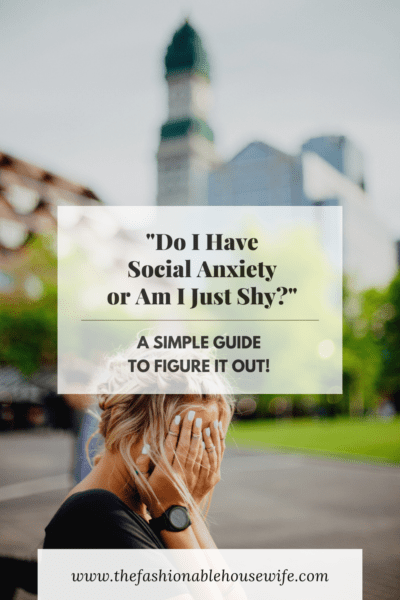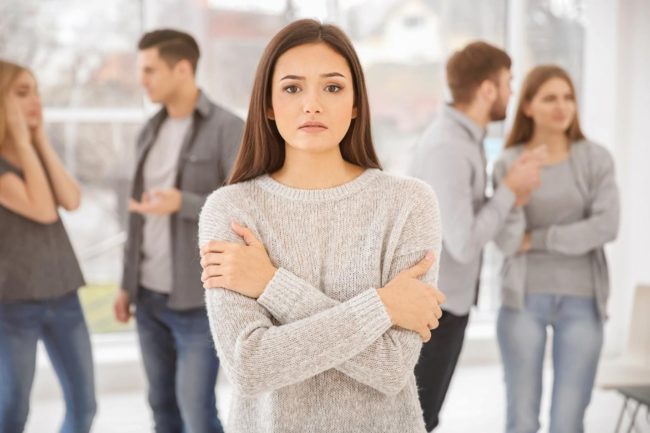
Are you trying to figure out the answer to, “Do I have social anxiety or am I just shy?” Read this article to learn more about the differences.
How do you cope in social situations?
Not everyone finds socializing easy. In fact, a lot of people hate the thought of meeting a group of people, sharing stories with strangers, or even playing games with friends.
If you get stressed out by these sorts of things, you’ve probably asked yourself do I have social anxiety or am I just shy?. Without knowing the facts, it can be hard to tell the difference between the two!
To learn more about the signs of social anxiety to work out exactly which category you fall into, take a look at this guide.
What Is Social Anxiety?
Social anxiety disorder (SAD) can get confused with shyness if you don’t know what it is. But SAD is much more complex than being a little quiet or introverted. It’s actually a psychiatric condition that can have a devastating impact on the lives of those living with it.
Because social anxiety is so often confused with shyness, only around 50% of adults who have the disorder ever actually receive treatment. This is a terrible statistic and one that needs to change!
To start with, more people need to know this difference between shyness and social anxiety symptoms!
Social Anxiety Signs
Also known as social phobia, SAD can create very intense negative feelings around social situations. It affects everyday life, including relationships, careers, and your feelings towards yourself. Teens with social anxiety may find school very difficult, especially when it comes to participating in class, team activities, and making friends.
To work out whether you have it, here are some of the main signs of social anxiety:
- You worry about simple social activities, such as going shopping, talking on the phone, and meeting strangers
- You try to avoid social activities
- You worry a lot about how you might embarrass yourself in a social situation
- You feel like you’re being constantly watched and judged
- You hate being criticized
- You avoid confrontation at all costs
- You have very low self-esteem and little confidence
- You’ll overthink the situation whilst you’re in it and be careful of what you say and do
Alongside these mental symptoms, there are also social anxiety physical symptoms. These include feeling nauseous, shaking, sweating, and feeling your heart pounding. You might also have panic attacks in social situations, which are episodes of intense fear and anxiety that have a lot of physical symptoms.
Social anxiety can also lead to other mental health issues, including generalized anxiety disorder and depression.
Do I Have Social Anxiety or am I Just Shy?
When it comes down to whether you have social anxiety or shyness, some of the symptoms can be similar. But, there are ways to differentiate between the two.
If you have an intense fear of social situations, will do anything you can to avoid them, and find it’s affecting your day to day life negatively, and quite obviously, you most likely have a social anxiety disorder.
As the social situation continues, a shy person may feel their fears lift. A person with SAD, however, won’t. Even if they realize they have nothing to worry about, they can’t control their emotions.
When Should You Get Help?
If you think you have a social anxiety disorder, it’s so important that you get help for it! If you don’t, you may find your condition worsening and continuously affecting your life. When you don’t even want to go to work just to avoid people, it might be time to consider alternative career paths for introverts.
Even if you’re not 100% sure, it’s best to visit a doctor or psychiatrist. They can take a look at how you’re feeling and properly diagnose you. Once you have a diagnosis, you can start taking steps to deal with your social anxiety disorder and take control of your life.

Is There Anything You Can Do Now?
There are ways you can try to ease the symptoms of SAD on your own, but these work best alongside professional care. These self-care coping mechanisms can be a great way to start moving your life forward, though, so whilst you wait to see a mental health specialist start practising these techniques.
Understand Your Anxiety
The root cause of your anxiety can be complex. Try to dig deep within your emotions to work out what happens in your mind during situations that cause you anxiety. It can help to write these down and keep a journal of your feelings and symptoms.
Learn Relaxation Techniques
Learning to calm down your mind and heart could help alleviate that fight or flight feeling anxiety brings about. Activities such as meditation, yoga, and even simple breathing exercises can help.
Break Down Social Situations
If you look at a social situation in small parts, it can become easier to manage. For example, if you have to go shopping, write down each part that worries you and some coping mechanisms to help. Over time, you’ll start to feel more relaxed with some parts and find the whole situation easier.
Try to Focus on Reality
It’s easy to get wrapped up in your own thoughts when you have social anxiety. Try to bring yourself back to reality and focus on what’s going on around you.
Is anyone laughing at you, talking about you, or even paying attention to you? Is there anything going on here that’s actually putting you in danger? Asking yourself these questions can help you rationalize your feelings and calm your mind.
The Start of Your Journey
Do I have social anxiety or am I just shy? It isn’t always an easy question to answer, but once you work it out you can work on getting help and growing confidence. This is the start of your journey, but by taking this step you’ve already done a lot of the work!
If you enjoyed this article, be sure to take a look at more on our website. We discuss everything from mental health to relationship advice, so be sure to have a good browse!



